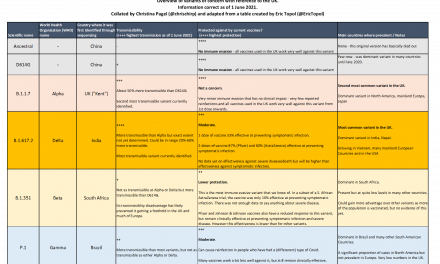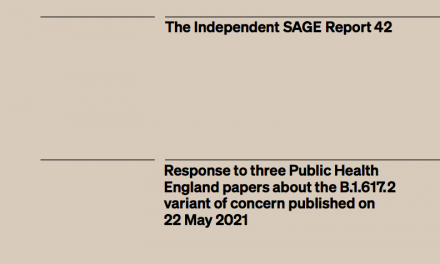Independent SAGE statement on cuts to the Department for Education allocation of laptops for disadvantaged pupils in England
- On 22nd October, the Department for Education imposed a legal duty on all schools in England “to provide remote education for state-funded, school-age children unable to attend school due to coronavirus (COVID-19)”.
- The next day, 23rd October the Department for Education informed schools in England that their allocation of laptop computers for disadvantaged students would be cut by approximately 80%.
- According to government figures, over 400,000 school students and some 14% of state secondary pupils are currently off school for COVID-19 related reasons. Nearly half (46%) of all state secondary schools are affected.
- In some areas in the country a far greater proportion of pupils are affected. For instance, in Knowsley, which has one of the highest proportions of severely deprived neighborhoods in England, 39% of secondary school pupils are currently missing school.
- The cuts in computer allocations will make it extremely difficult for schools to abide by the legal duty of providing remote learning, particularly for children from deprived backgrounds. They will further increase the levels of educational inequality which were manifest in the first phase of the pandemic when Independent schools were more than twice as likely to run online classes as state schools.
- This episode is emblematic of the Government pandemic response which lays duties and requirements upon sectors (such as education) but without providing the support necessary to implement them. While it is clearly desirable that students unable to attend school should be provided with remote education, this is an empty aspiration without ensuring that all pupils have the necessary resources.
- Independent SAGE therefore calls on the Government, first immediately to withdraw their cuts to computer allocations for disadvantaged pupils; second, to extend the scheme so as to ensure that all students have the computer hardware, software and connectivity necessary for remote learning; third, to monitor the implementation of this policy and regularly publish figures, disaggregated by locality and ethnicity, as to evaluate its attainment and impact.




